by Daniel Hathaway
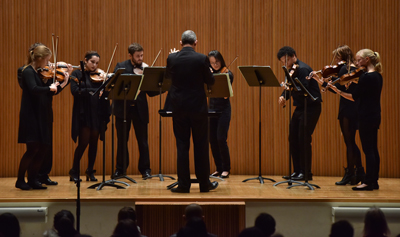
Whether by happenstance or design, the program was arranged in ascending order of duration — not that any of the works were lengthy. First up, Norman’s Gran Turismo for eight virtuoso violinists took only 8 minutes to play, and the closer, Sanchez-Gutierrez’s Five Memos, flew by in under 15.
Norman’s 2007 piece is named after a race car driving video game, which accounts for the frenzied music he wrote for the violins, who were arranged in a circle around Weiss. “Pedal to the Metal, with excessive energy” is the tempo marking at the beginning, and outside of two slower, more lyrical sections which intervene along the route, the rhythmic energy flows unabated to the end, goaded on by Norman’s instructions to the fiddles to “floor it” and saw away “as fast as possible.” Norman is terrific at writing structured music of relentless activity, and the Oberlin violinists gave Gran Turismo a splendid outing.
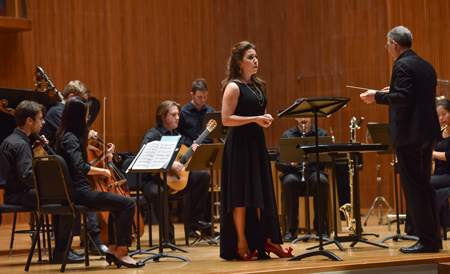
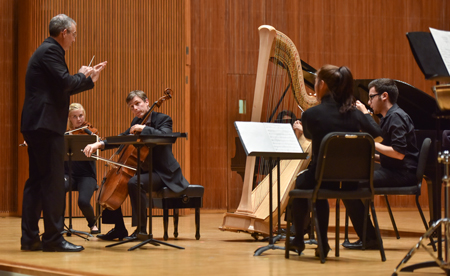
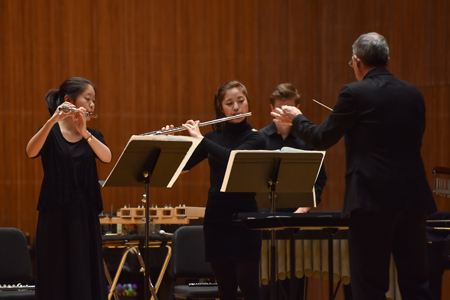
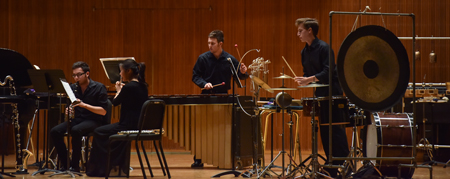
Flutist Erica Zheng, clarinetist César Palacio, violinist Kah Yan Lee, cellist Jacob Efthimiou, percussionists Daniel King and Justin Gunter, and pianist Jie Song expertly underlined the character of each of the five contrasting movements, dispatching complicated material with apparent ease under the magic baton of Timothy Weiss.
Photos by Yevhen Golenko, Oberlin Conservatory of Music.
Published on ClevelandClassical.com December 15, 2015.
Click here for a printable copy of this article


